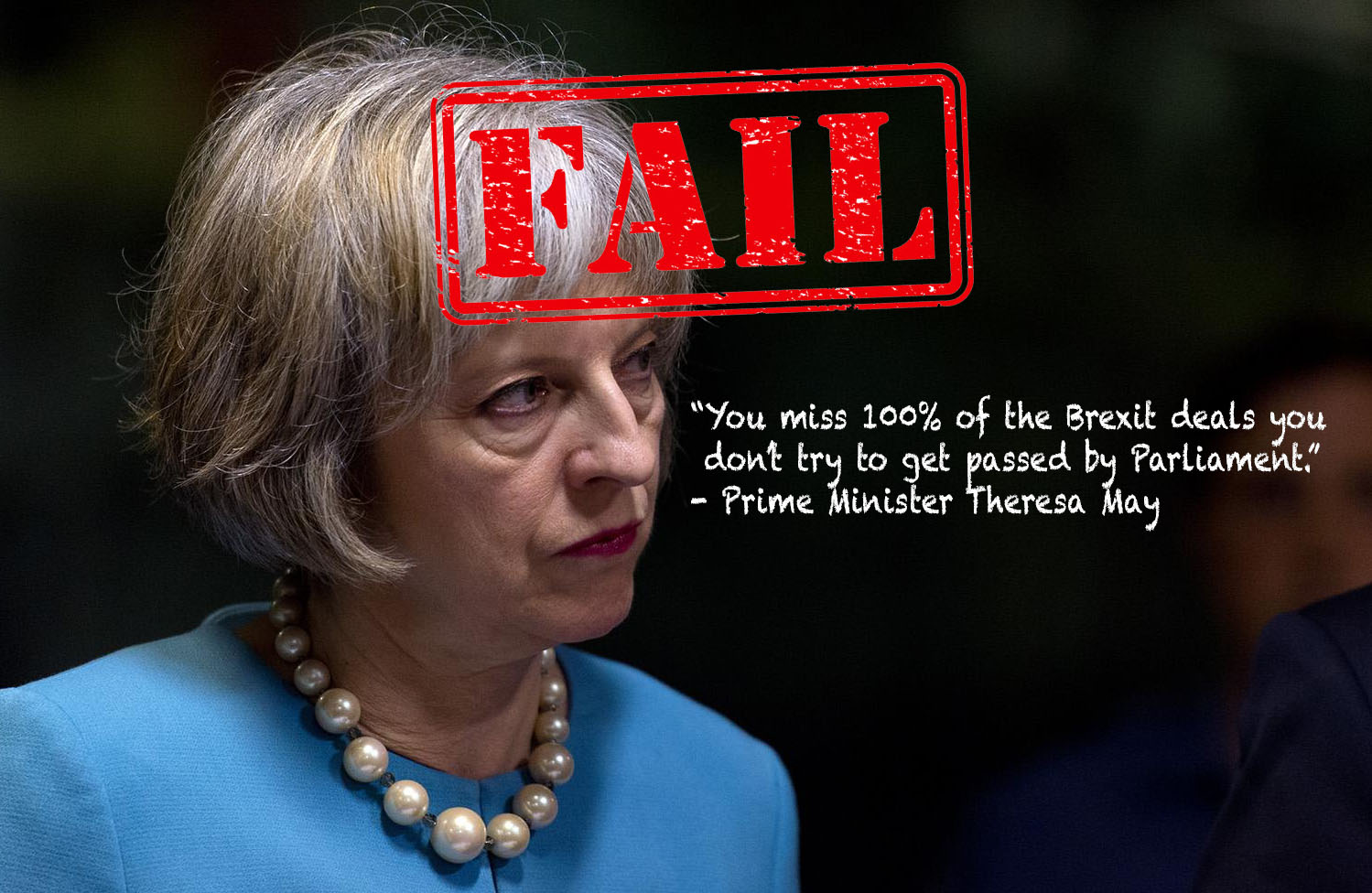There’s something very bittersweet about failure. In the moments after recognizing that you complete a task or surpass an obstacle, it is not unusual to feel dejected and worthless, like no matter how much effort you put in, it just wasn’t enough. Now, I say ‘bittersweet’ because, when all valid moping about is said and done, there are lessons to be extrapolated from all the mistakes that we make. This very understanding is the basis of the scientific method, as well as the core methodology behind practicing any sport, instrument, or skill that you want to improve upon. When I was younger, I was far from perfect in a number of subject areas, but I was always taught to fail forward, and learn from my mistakes so that I may never make them again. I can only imagine how UK Prime Minister Theresa May must feel after Tuesday’s vote during which the UK Parliament rejected her Brexit deal by a resounding 432-202 margin.
For the sake of due diligence as a storyteller, allow me to catch all necessary parties up to speed on the whole Brexit debacle. Back in June 2016, a gaggle of Britains was feeling pretty confident in themselves and the future of their country, so they voted, 52 to 48 percent, to leave the confines of the European Union, arguing that the United Kingdom would regain control over its borders, and perhaps take a second go at colonizing America. Those opposed to the infamous “Brexit” warned everyone that leaving the bloc would result in chaos. Suffice to say, the “Brexiteers” came out on top and the remaining 27 EU member-states approved the UK’s agreement to leave the union at a summit in Brussels several weeks ago, according to Vox. As daunting as the process was, the captain of the good ship Brexit, Prime Minister Theresa May was tasked with convincing her 650-member parliament to approve the deal.
After countless months of negotiating the deal between the European Union and the UK Parliament, Theresa May suffered the largest legislative defeat any prime minister has suffered in modern British History, according to Vox. While May is still in the groveling stages of her failure, several political analysts have pointed out that the Brexit deal was destined to be rejected from the very beginning. The terms on which Conservative Brexiteers wanted to leave the EU were far too intense for any EU negotiator to even remotely consider. Imagine a couple going through a divorce, let’s say Jeff Bezos and his wife, and Bezos proposes to his wife’s legal counsel that she doesn’t actually need billions of dollars to be happy, both Mackenzie and her lawyers would think Jeff had gone off his rocker. This was the sentiment felt by EU negotiators throughout the entirety of the Brexit process.
With her pride and literal job on the line, Prime Minister May managed to survive a “no-confidence” vote in Parliament on Wednesday following her Brexit defeat one day earlier. According to several sources, May won by a margin of 325 to 306, meaning that her fellow UK government colleagues still believe that, despite Brexit’s failure, she is still fit to hold her position as Prime Minister, at least for the time being. Following her defeat, May promised to consult MPs on any edits she plans on making for Brexit 2.0, in hopes of making the deal more palatable for Parliament’s taste. The issue is that, as many of us know, once you’ve made a very large mistake, it becomes far more difficult to correct the error. Perhaps the most contentious component of Brexit, the Irish “backstop,” which guarantees that there won’t be a border in Ireland, has caused much of the disdain surrounding May’s Brexit deal. Mrs May has very little time before she must return to Parliament with a new motion detailing her plans for Brexit, and for her sake, I hope UK Parliament members are feeling forgiving that day.





